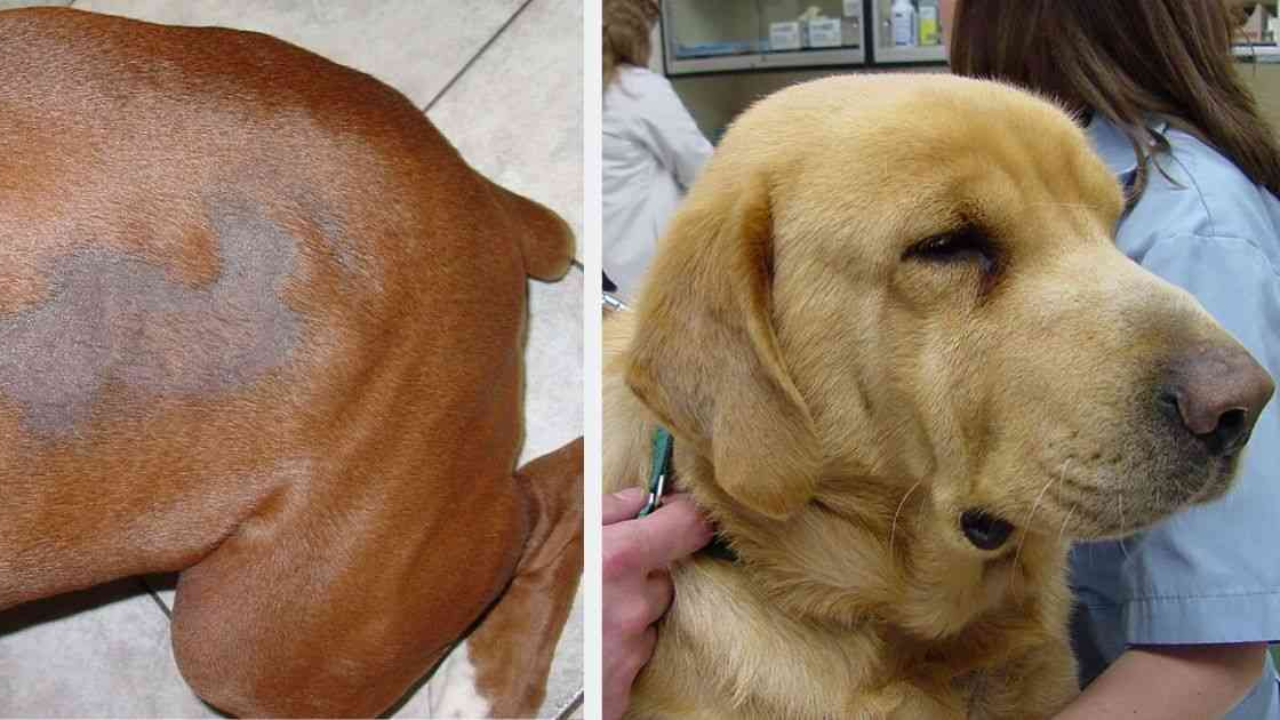How to Manage Hypothyroidism in Dogs with Natural Solutions

Supplements for Hypothyroidism in Dogs: My Top Five Recommendations
If your dog has been diagnosed with hypothyroidism, you might be wondering about the best supplements to support their health. As a veterinarian, I’m here to share my top five supplements, supported by studies, to help manage hypothyroidism in dogs. Hypothyroidism is a common condition, especially in breeds like Labrador Retrievers and Golden Retrievers, and it occurs when the thyroid gland, located next to the trachea in the neck, doesn’t produce enough thyroid hormone. This hormone is crucial for regulating metabolism.

What Is Hypothyroidism in Dogs?
When the thyroid gland isn’t functioning properly, your dog’s metabolism becomes sluggish. Symptoms may include lack of energy, hair loss (especially symmetric), and difficulty maintaining weight. Often, the cause is autoimmune thyroiditis, where the immune system attacks the thyroid gland, leading to a reduction in thyroid hormone production.
While conventional treatment usually involves synthetic thyroid hormone replacement, I believe in supporting the body with the right nutrients to both reduce autoimmune damage and promote thyroid hormone production naturally. Here are my top five supplements for managing hypothyroidism in dogs.
1. Probiotics – Support Gut Health to Protect the Thyroid
One of the best ways to help your dog’s thyroid is by reducing gut inflammation, which can contribute to thyroid damage. Probiotics are key in supporting gut health, and the strain Lactobacillus acidophilus has the most studies backing its effectiveness. For dogs, I recommend a dose of at least 100 million CFUs per 10 pounds of body weight per day.
2. Zinc – Essential for Thyroid Hormone Production
Zinc is a mineral that plays a critical role in the production of thyroid hormone. Studies show that people with hypothyroidism often benefit from zinc supplementation, and the same applies to dogs. A standard dog dose is 25 milligrams per 50 pounds of body weight daily. For instance, Pippy (my 50-pound dog) would take half of a 50-milligram zinc capsule once a day.
3. Selenium – A Key Micronutrient for Thyroid Health
Selenium is another essential nutrient for thyroid hormone production. Many studies have shown that people with hypothyroidism benefit from selenium supplementation, as it helps increase thyroid hormone levels. For dogs, the ideal selenium dose is 1-2 micrograms per pound of body weight. For a dog like Pippy, who weighs 50 pounds, she should be getting 50 to 100 micrograms daily, which equates to half to one 100-microgram capsule per day.
4. Iodine from Seaweed – A Natural Way to Support Thyroid Function
Iodine is a key micronutrient that helps make thyroid hormones. The tricky part about supplementing iodine is that only a small amount is needed, which is why giving it in the form of a whole plant, such as seaweed, is a natural and safe way to increase iodine levels. Nori seaweed is not only rich in iodine but also packed with iron, magnesium, B12, and omega-3 fatty acids. I recommend giving your dog one sheet of nori per day. For a 50-pound dog like Pippy, this is a nutrient-dense and safe way to support thyroid health.
5. Ashwagandha – A Powerful Herb for Thyroid Health
Finally, ashwagandha is an herb that’s proven to be highly beneficial for animals with hypothyroidism. Known as Indian ginseng, it has been used for thousands of years in traditional medicine for its adaptogenic properties. Ashwagandha helps regulate hormone production, meaning it can either increase or decrease hormone production depending on the body’s needs. A standard dose for dogs is around 400 milligrams per 50 pounds of body weight daily. For Pippy, this would mean one 400-milligram capsule per day.
A Convenient Option: Dr. Jones’s Ultimate Canine Advanced Health Formula
If you’re looking for an easier way to provide your dog with all these nutrients, I created a supplement that contains probiotics, zinc, selenium, and iodine—Dr. Jones’s Ultimate Canine Advanced Health Formula. This is a convenient way to give your dog the support they need for hypothyroidism.
Conclusion
Managing hypothyroidism in dogs goes beyond synthetic thyroid hormone replacement. With the right supplements, you can help reduce autoimmune damage to the thyroid gland and support the production of thyroid hormones naturally. I recommend these five supplements: probiotics, zinc, selenium, iodine from seaweed, and ashwagandha. If you’re interested in learning more, click the link below to receive a free copy of my book on hypothyroidism.
Thank you for watching, and don’t forget to subscribe and hit the bell for notifications!


I REALLY wish u had had discounts for disabled people and their service dogs!!!! If u r disabled before u r a senior u REALLY STRUGGLE on disability!!! We r a class of people who are basically overlooked and overloaded. I do so many things to cut bills down and I have to go to food banks so I can afford dogfood,but as utilities keep getting approved to raise their costs we r failing.and NO vet will take payments.so I try to use food,etc to keep him well.
Also how long does it take to see a difference with using ur product.ty for helping Buster (lab- collie mix) and I.God bless u! ? Long time followes
Hi Michele, we do have senior discounts available, please contact customer support at: support@veterinarysecrets.com. And for your question, it really depends on your pet’s health condition and how they respond. Some respond quickly, with others it may take long and / or a multifactorial approach.
Hi if my dog is already taking thyroid medicine from our vet will the other natural remedies he is suggesting even his ultimate supplement work with it or do i need to stop the vet medication?
You can try our Ultimate Supplement as it is natural, it is compatible with other medicines.
Does Trupanion insurance help pay with the products?
Here’s our store page and we do accept Visa, MasterCard and PayPal
https://shop.veterinarysecrets.com/supplements.html